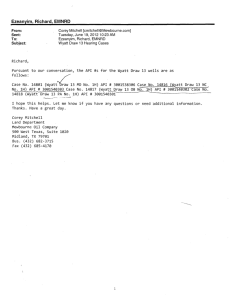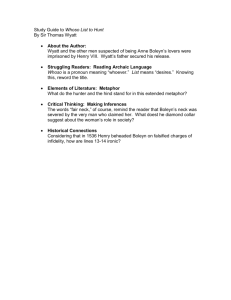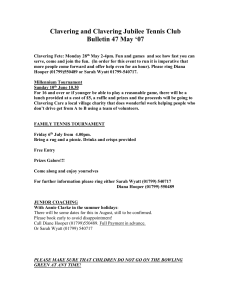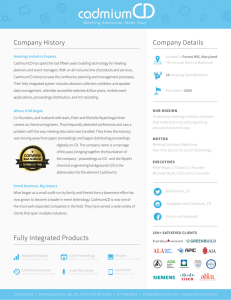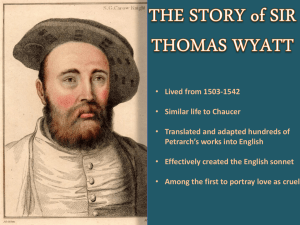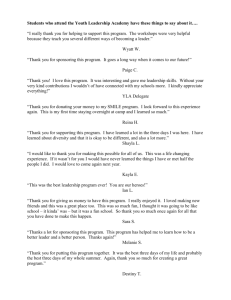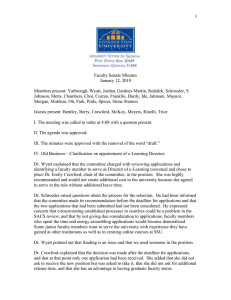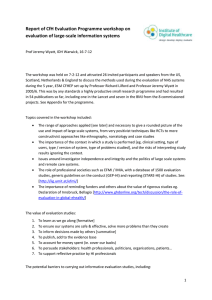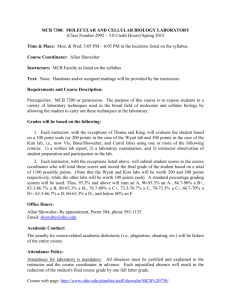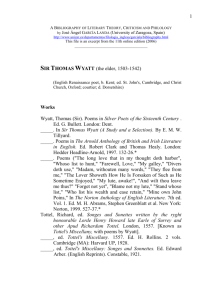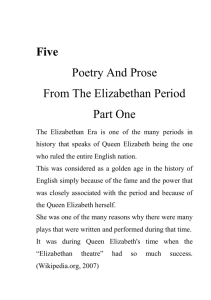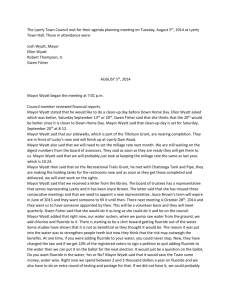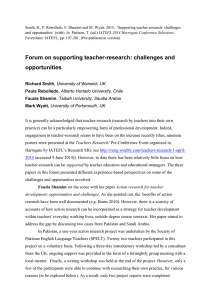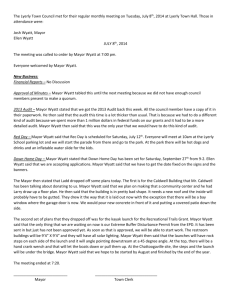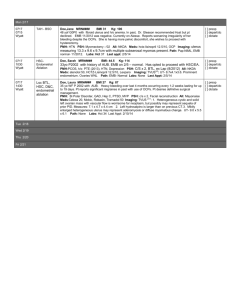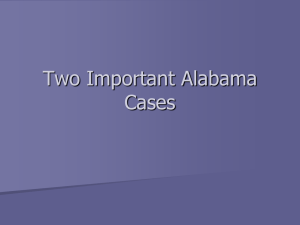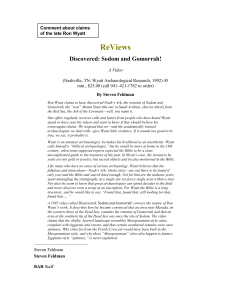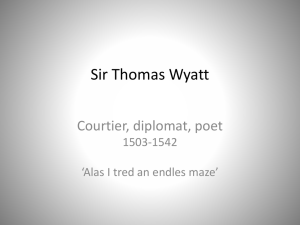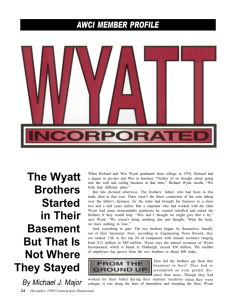abs_wyatt
advertisement
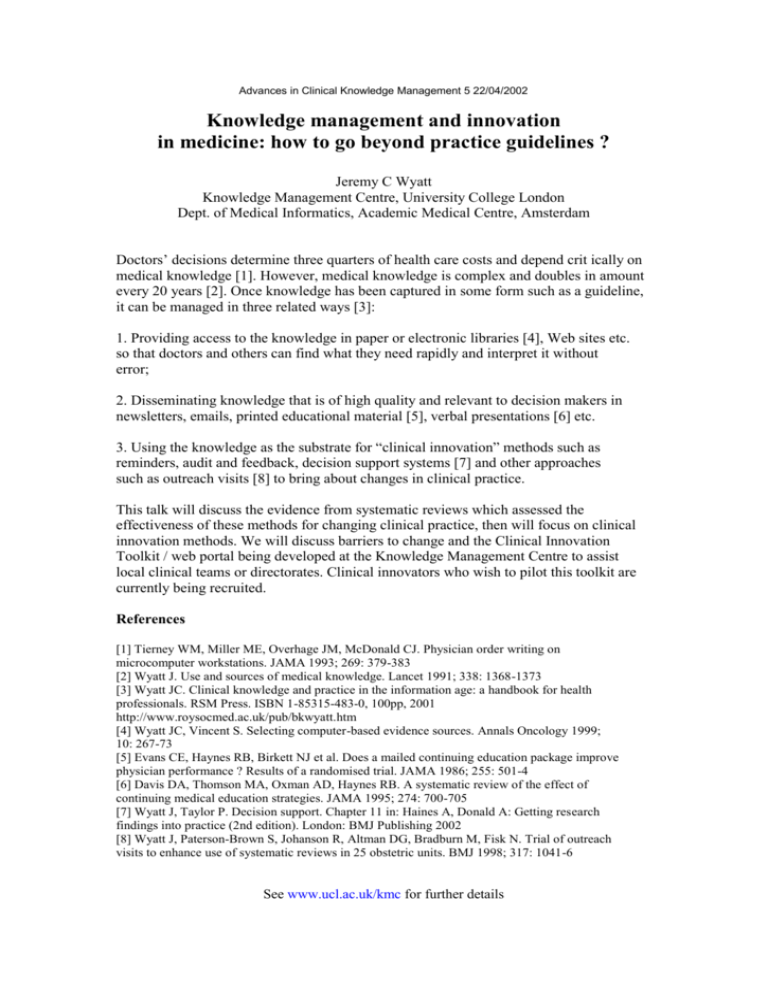
Advances in Clinical Knowledge Management 5 22/04/2002 Knowledge management and innovation in medicine: how to go beyond practice guidelines ? Jeremy C Wyatt Knowledge Management Centre, University College London Dept. of Medical Informatics, Academic Medical Centre, Amsterdam Doctors’ decisions determine three quarters of health care costs and depend crit ically on medical knowledge [1]. However, medical knowledge is complex and doubles in amount every 20 years [2]. Once knowledge has been captured in some form such as a guideline, it can be managed in three related ways [3]: 1. Providing access to the knowledge in paper or electronic libraries [4], Web sites etc. so that doctors and others can find what they need rapidly and interpret it without error; 2. Disseminating knowledge that is of high quality and relevant to decision makers in newsletters, emails, printed educational material [5], verbal presentations [6] etc. 3. Using the knowledge as the substrate for “clinical innovation” methods such as reminders, audit and feedback, decision support systems [7] and other approaches such as outreach visits [8] to bring about changes in clinical practice. This talk will discuss the evidence from systematic reviews which assessed the effectiveness of these methods for changing clinical practice, then will focus on clinical innovation methods. We will discuss barriers to change and the Clinical Innovation Toolkit / web portal being developed at the Knowledge Management Centre to assist local clinical teams or directorates. Clinical innovators who wish to pilot this toolkit are currently being recruited. References [1] Tierney WM, Miller ME, Overhage JM, McDonald CJ. Physician order writing on microcomputer workstations. JAMA 1993; 269: 379-383 [2] Wyatt J. Use and sources of medical knowledge. Lancet 1991; 338: 1368-1373 [3] Wyatt JC. Clinical knowledge and practice in the information age: a handbook for health professionals. RSM Press. ISBN 1-85315-483-0, 100pp, 2001 http://www.roysocmed.ac.uk/pub/bkwyatt.htm [4] Wyatt JC, Vincent S. Selecting computer-based evidence sources. Annals Oncology 1999; 10: 267-73 [5] Evans CE, Haynes RB, Birkett NJ et al. Does a mailed continuing education package improve physician performance ? Results of a randomised trial. JAMA 1986; 255: 501-4 [6] Davis DA, Thomson MA, Oxman AD, Haynes RB. A systematic review of the effect of continuing medical education strategies. JAMA 1995; 274: 700-705 [7] Wyatt J, Taylor P. Decision support. Chapter 11 in: Haines A, Donald A: Getting research findings into practice (2nd edition). London: BMJ Publishing 2002 [8] Wyatt J, Paterson-Brown S, Johanson R, Altman DG, Bradburn M, Fisk N. Trial of outreach visits to enhance use of systematic reviews in 25 obstetric units. BMJ 1998; 317: 1041-6 See www.ucl.ac.uk/kmc for further details Jeremy Wyatt Knowledge Management Centre University College London School of Public Policy 29/30 Tavistock Square London WC1H 9EZ Tel: 020 7 679 4986 Email: Jeremy.wyatt@ucl.ac.uk Klinische Informatiekunde (KIK) Academic Medical Centre Room J2-277 Meibergdreef 15 1105 AZ Amsterdam The Netherlands Tel: +31-(0)20-56-678-76 Email: j.c.wyatt@amc.uva.nl

